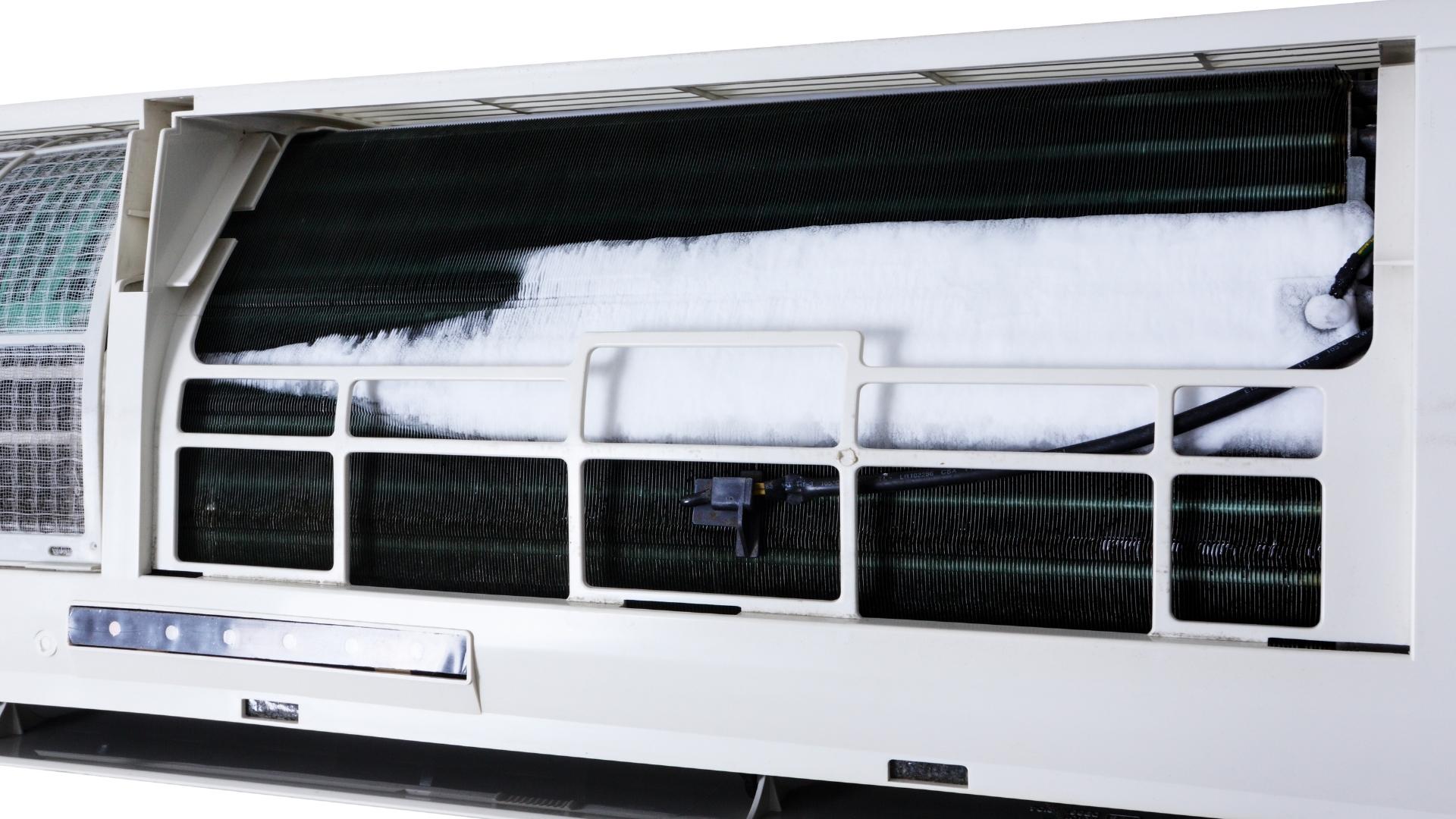

Articles
Why Does an AC Unit Freeze Up
Modified: March 25, 2024
Discover the reasons why your AC unit freezes up and learn how to prevent this issue with helpful articles and tips.
(Many of the links in this article redirect to a specific reviewed product. Your purchase of these products through affiliate links helps to generate commission for Storables.com, at no extra cost. Learn more)
Introduction
An air conditioning (AC) unit is an essential appliance for keeping our homes cool and comfortable during hot summer months. However, there are times when we may encounter an unexpected problem: the AC unit freezing up. This can be a frustrating issue, as it not only prevents the AC from cooling the room effectively but can also cause damage to the unit itself.
In this article, we will explore the reasons behind an AC unit freezing up and discuss some preventive measures to avoid this issue. Understanding the causes of AC unit freezing can help homeowners troubleshoot the problem or even prevent it from occurring in the first place. So, let’s dive in and gain a better understanding of why AC units freeze up.
Key Takeaways:
- Regular maintenance, proper airflow, and optimal temperature settings are crucial for preventing AC unit freezing and ensuring efficient cooling. Consult a professional HVAC technician for complex issues.
- Understanding common causes of AC unit freezing, such as insufficient airflow and low refrigerant levels, helps homeowners implement preventive measures and maintain their AC units effectively.
Read more: Why Is My Window AC Freezing Up
Understanding How an AC Unit Works
Before we delve into the reasons behind an AC unit freezing up, it is important to have a basic understanding of how an AC unit works. AC units use a refrigeration cycle to extract heat from the indoor air and release it outside, resulting in a cooler indoor environment.
The refrigeration cycle starts with the compressor, which compresses the refrigerant gas, raising its temperature and pressure. The high-pressure refrigerant then flows to the condenser coil, where it is cooled down by a fan or blower, dissipating the heat to the outside environment.
After the refrigerant has been cooled, it becomes a high-pressure liquid and enters the expansion valve or metering device. This valve reduces the pressure of the refrigerant, causing it to evaporate into a low-pressure gas. As the refrigerant evaporates, it absorbs heat from the surrounding air, cooling the indoor environment.
The evaporator coil is responsible for the exchange of warm indoor air and cool refrigerant. A fan or blower forces warm air from the room over the evaporator coil, transferring heat from the air to the refrigerant. The cooled air is then circulated back into the room, while the heated refrigerant is compressed at the compressor, restarting the refrigeration cycle.
This continuous cycle of heat exchange allows the AC unit to maintain a comfortable indoor temperature. However, several factors can disrupt this process and lead to the freezing of the AC unit.
Common Causes of AC Unit Freezing
An AC unit freezing up can be attributed to various factors. Let’s explore some of the most common causes:
- Insufficient Airflow: One of the primary causes of AC unit freezing is inadequate airflow. When there is not enough air passing over the evaporator coil, the refrigerant cannot absorb enough heat, causing the coil to become excessively cold and freeze up. This can be caused by dirty air filters, closed or blocked vents, or a malfunctioning blower fan.
- Low Refrigerant Levels: The refrigerant plays a crucial role in the cooling process, and if the AC unit is low on refrigerant, it can lead to freezing. Low refrigerant levels can occur due to leaks in the system, improper installation, or manufacturing defects. When the refrigerant level is too low, the pressure and temperature in the evaporator coil drop, causing ice formation.
- Dirty Evaporator Coil: Over time, the evaporator coil can accumulate dirt, dust, and debris, hampering its ability to transfer heat efficiently. As a result, the coil may get too cold and freeze up. Regular maintenance and cleaning of the evaporator coil are essential to prevent this issue.
- Malfunctioning Thermostat: If the thermostat is not functioning properly, it may not communicate the correct temperature readings to the AC unit. This can lead to the system running longer than necessary, causing the evaporator coil to freeze.
- Blocked or Restricted Air Vents: Blocked or closed air vents can disrupt the airflow in the system, leading to freezing. It is important to ensure that all air vents are open and unobstructed.
- Overuse or Incorrect Temperature Setting: Running the AC unit for an extended period without giving it sufficient time to defrost can contribute to freezing. Additionally, setting the temperature too low can cause the evaporator coil to cool excessively and freeze.
By understanding these common causes, homeowners can take the necessary steps to prevent their AC units from freezing up. In the next section, we will discuss some preventive measures to avoid this issue.
Insufficient Airflow
Insufficient airflow is a leading cause of AC unit freezing. When there is not enough air passing over the evaporator coil, the refrigerant cannot absorb enough heat, causing the coil to become excessively cold and freeze up.
One of the main culprits of insufficient airflow is dirty air filters. Over time, air filters can become clogged with dust, dirt, and other particles, restricting the flow of air into the AC system. This reduces the amount of air reaching the evaporator coil and can result in freezing. Regularly cleaning or replacing air filters is crucial to ensure proper airflow and prevent the AC unit from freezing.
In addition to dirty air filters, closed or blocked air vents can also impede the airflow. If air vents are closed or obstructed by furniture, curtains, or other objects, the air cannot circulate effectively throughout the room, leading to inadequate airflow and potential freezing of the AC unit. It is important to ensure that all air vents are open and unobstructed to promote proper airflow.
Another factor that can contribute to insufficient airflow is a malfunctioning blower fan. If the fan is not operating at its full capacity or is not functioning at all, it will not be able to effectively move air across the evaporator coil. This reduced airflow can lead to freezing. Regular maintenance and inspection of the blower fan are essential to identify any issues and ensure proper airflow.
To prevent insufficient airflow and subsequent freezing of the AC unit, homeowners should make sure to clean or replace air filters regularly, keep air vents open and unblocked, and schedule regular maintenance to check the condition of the blower fan. By maintaining adequate airflow, homeowners can avoid the inconvenience and potential damage of an AC unit freezing up.
Low Refrigerant Levels
Low refrigerant levels in an AC unit can contribute to the freezing of the system. Refrigerant is the substance responsible for absorbing heat from the indoor air and releasing it outside, cooling the indoor environment. When the AC unit is low on refrigerant, the pressure and temperature in the evaporator coil drop, causing ice formation.
There are several reasons why an AC unit may have low refrigerant levels. One of the most common causes is refrigerant leaks. Over time, connections, valves, and coils in the refrigeration system may develop leaks, allowing the refrigerant to escape. Additionally, poor installation or manufacturing defects can also result in low refrigerant levels.
It is important to address low refrigerant levels promptly, as they can lead to inefficient cooling and increased energy consumption. Additionally, running the AC unit with low refrigerant can cause the evaporator coil to become excessively cold and freeze up.
If you suspect that your AC unit has low refrigerant levels, it is best to contact a professional HVAC technician. They will be able to inspect the system, identify any leaks, and recharge the refrigerant to the appropriate level.
To prevent low refrigerant levels in the future, it is essential to schedule regular maintenance for your AC unit. During maintenance visits, a technician can check for any leaks, repair them if necessary, and ensure that the refrigerant level is optimal. By addressing low refrigerant levels and maintaining the proper refrigerant level in your AC unit, you can prevent freezing and ensure efficient cooling throughout your home.
Read more: Why Is My AC Freezing Over
Dirty Evaporator Coil
The evaporator coil plays a crucial role in the cooling process of an AC unit. It is responsible for the exchange of warm indoor air and cool refrigerant, allowing the refrigerant to absorb heat and lower the temperature of the air in the room. However, over time, the evaporator coil can become dirty and hinder its ability to transfer heat effectively.
Dust, dirt, pollen, and other airborne particles can accumulate on the surface of the evaporator coil. This buildup acts as an insulator, preventing the refrigerant from absorbing heat efficiently. As a result, the coil may get too cold, causing moisture in the surrounding air to freeze, leading to a frozen evaporator coil.
To prevent a dirty evaporator coil from causing freezing issues, regular maintenance and cleaning are necessary. A professional HVAC technician can inspect the evaporator coil during routine maintenance visits and clean it if needed. They will remove any accumulated dirt, dust, or debris to restore the coil’s efficiency.
Homeowners can also perform some maintenance tasks to keep the evaporator coil clean. First, it is important to regularly change or clean the air filters. Clean filters promote better airflow and reduce the amount of debris that can reach the evaporator coil. Secondly, keeping the area around the AC unit clean and free from dust and debris can prevent them from entering the coil and causing buildup.
It is worth noting that cleaning the evaporator coil is a delicate task that requires knowledge and expertise. Improper cleaning techniques or using the wrong cleaning agents can damage the coil. Therefore, it is recommended to seek professional assistance for thorough and effective cleaning.
By maintaining a clean evaporator coil, homeowners can ensure efficient heat transfer, prevent freezing issues, and extend the lifespan of their AC unit.
Malfunctioning Thermostat
A malfunctioning thermostat can contribute to the freezing of an AC unit. The thermostat is responsible for monitoring and controlling the temperature of the room, sending signals to the AC unit to turn on or off as needed. If the thermostat is not functioning properly, it may not communicate the correct temperature readings to the AC unit, leading to potential freezing.
There are several ways in which a malfunctioning thermostat can impact the operation of an AC unit:
- Incorrect temperature readings: A malfunctioning thermostat may display inaccurate temperature readings, causing the AC unit to run longer than necessary. This prolonged operation can result in the evaporator coil becoming excessively cold and eventually freezing up.
- Faulty temperature sensors: The temperature sensors within the thermostat can malfunction, leading to inaccurate measurements. If the sensors do not detect the correct temperature, the AC unit may not receive the appropriate signals to regulate its operation, potentially causing freezing issues.
- Wiring problems: Issues with the wiring connecting the thermostat to the AC unit can disrupt the communication between the two. This can result in the AC unit not receiving the necessary signals to operate correctly, leading to freezing of the evaporator coil.
If you suspect that your thermostat is malfunctioning, there are a few troubleshooting steps you can take. First, check the batteries in your thermostat and replace them if necessary. Ensure that the thermostat is set to the correct mode (cooling mode) and that the temperature settings are appropriate. If these steps do not resolve the issue, it is best to contact a professional HVAC technician to inspect and repair the thermostat if needed.
Regular maintenance of the thermostat is essential to ensure its proper functioning. It is recommended to schedule routine checks by a professional technician to calibrate and verify the accuracy of the thermostat’s temperature readings.
By maintaining a properly functioning thermostat, homeowners can avoid freezing issues and ensure that their AC unit operates effectively to provide optimal cooling comfort.
Blocked or Restricted Air Vents
Blocked or restricted air vents can significantly impact the airflow in an AC system and contribute to the freezing of the unit. Air vents are designed to distribute cool air from the AC unit to different areas of the room. When these vents are blocked or obstructed, the airflow becomes restricted, causing issues with the cooling process.
One common cause of blocked air vents is furniture or other objects placed in front of them. When air vents are obstructed, the cool air from the AC unit cannot circulate freely throughout the room. As a result, the airflow to the evaporator coil is reduced, leading to insufficient heat absorption and potential freezing.
In addition to furniture, other factors can also contribute to blocked or restricted air vents. These include dirty or clogged air vents, closed or partially closed vents, or improperly designed ventilation systems.
Regularly cleaning air vents is an essential part of AC system maintenance. Dust, dirt, and debris can accumulate on the vents, obstructing the airflow. By keeping the vents clean, homeowners can ensure proper air circulation and prevent freezing of the AC unit.
It is also important to ensure that all air vents are open and unobstructed. Check each vent in your home to make sure they are not blocked by furniture, rugs, or other objects. If you have adjustable vents, ensure they are fully open to allow for unrestricted airflow.
In some cases, the design of the ventilation system itself may contribute to restricted airflow. This can occur if the system has inadequate duct sizing or if there are too few vents in the room. In such cases, consulting with a professional HVAC technician can help identify the issue and provide recommendations for resolving the problem.
By ensuring that air vents are open, clean, and free from obstructions, homeowners can promote proper airflow in their AC systems and minimize the risk of freezing.
Check and replace the air filter regularly to ensure proper airflow. Low airflow can cause the evaporator coil to freeze up.
Overuse or Incorrect Temperature Setting
Overusing an AC unit or setting the temperature too low can contribute to the freezing of the evaporator coil. It’s important to strike a balance between keeping the room cool and ensuring the AC unit operates optimally without freezing up.
When an AC unit runs continuously without sufficient rest periods, the evaporator coil may not have enough time to defrost. The accumulated frost and ice on the coil can impede heat exchange and result in the coil freezing over time. It is recommended to allow the AC unit to rest periodically to prevent this issue. Setting the temperature slightly higher or using a programmable thermostat to adjust the cooling schedule can help provide appropriate rest periods for the AC unit.
Another factor to consider is the temperature setting itself. Setting the thermostat too low may cause the evaporator coil to cool excessively, leading to freezing. It is recommended to set the thermostat to a comfortable temperature rather than an extremely low one. Additionally, using a programmable thermostat can help maintain optimal temperature settings throughout the day, preventing the AC unit from running excessively and potentially freezing.
In situations where there are significant temperature differences between the indoor and outdoor environments, such as during heatwaves, it can be tempting to set the AC unit to the lowest temperature possible. However, this can strain the system and increase the likelihood of freezing. It is essential to find a balance between comfort and the AC unit’s capacity to prevent freezing issues.
Regularly monitoring and adjusting the temperature settings can help prevent overuse of the AC unit and maintain a balance that reduces the risk of freezing. In addition, using energy-efficient practices such as keeping doors and windows closed when the AC unit is running, utilizing ceiling fans, and ensuring proper insulation can contribute to maintaining a comfortable indoor environment without putting excessive strain on the AC unit.
By being mindful of overuse and setting appropriate temperature levels, homeowners can ensure the efficient and reliable operation of their AC units while minimizing the risk of freezing.
Read more: Why Does Dehumidifier Freeze Up
How to Prevent AC Unit Freezing
AC unit freezing can be a frustrating and inconvenient problem. Fortunately, there are several preventive measures homeowners can take to avoid this issue and keep their AC units running smoothly. Let’s explore some effective strategies:
- Regular Maintenance and Cleaning: Schedule regular maintenance visits with a professional HVAC technician to inspect and service your AC unit. This includes cleaning the evaporator coil, checking refrigerant levels, and ensuring proper functioning of components. Regular cleaning and maintenance help prevent dirt, dust, and debris from accumulating and obstructing airflow, reducing the risk of freezing.
- Proper Airflow Management: Maintain adequate airflow by keeping air vents open and unobstructed. Regularly clean or replace air filters to prevent them from becoming clogged. Ensure that furniture, curtains, or other objects are not blocking the air vents, allowing for unrestricted airflow throughout the room.
- Timely Refrigerant Check and Recharge: Have a professional technician check the refrigerant levels in your AC unit and recharge it if needed. Low refrigerant levels can cause freezing and reduce the cooling efficiency of the system. Addressing any leaks and maintaining the proper refrigerant level is essential for preventing freezing issues.
- Maintaining Optimal Temperature Settings: Avoid setting the thermostat to extremely low temperatures. Find a comfortable temperature setting that allows for efficient cooling without excessive strain on the AC unit. Consider using programmable thermostats to schedule temperature adjustments and provide rest periods for the AC unit to prevent continuous operation and potential freezing.
- Proper Insulation and Weatherization: Ensure that your home is properly insulated and sealed to minimize heat transfer and maintain a stable indoor temperature. Proper insulation reduces the strain on the AC unit, allowing it to operate efficiently and reducing the risk of freezing.
By following these preventive measures and adopting good maintenance practices, homeowners can significantly reduce the chances of their AC units freezing. Regular attention to airflow, refrigerant levels, temperature settings, and insulation helps ensure optimal performance and extends the lifespan of the AC unit.
Remember, if you encounter any issues or suspect a freezing problem with your AC unit, it is always best to seek professional assistance. HVAC technicians have the knowledge and expertise to diagnose and address specific problems, ensuring the long-term efficiency and reliability of your AC system.
Regular Maintenance and Cleaning
Regular maintenance and cleaning are essential for preventing AC unit freezing and ensuring the optimal performance of the system. By staying proactive with maintenance tasks, homeowners can identify and address potential issues before they escalate into major problems. Let’s explore some key maintenance and cleaning practices to keep your AC unit running smoothly:
1. Schedule Annual HVAC Maintenance: It is recommended to schedule annual maintenance visits with a professional HVAC technician. During these visits, the technician will inspect and service your AC unit, including checking refrigerant levels, cleaning the evaporator and condenser coils, lubricating moving parts, and testing system components. Regular maintenance helps prevent dirt buildup, identifies any potential refrigerant leaks or electrical issues, and ensures that your AC unit is in optimal condition.
2. Clean or Replace Air Filters: Dirty or clogged air filters restrict airflow to the AC system, making it work harder and potentially leading to freezing. It is important to clean or replace air filters regularly to maintain proper airflow. This typically involves checking the filters monthly and cleaning or replacing them as needed, depending on usage and the type of filter. Follow the manufacturer’s guidelines for proper filter maintenance.
3. Clean the Evaporator Coil: Over time, the evaporator coil can accumulate dirt, dust, and debris, hindering its ability to absorb heat efficiently. Regularly cleaning the evaporator coil is crucial for maintaining optimal cooling performance. It is recommended to hire a professional technician for this task, as they have the expertise and proper cleaning agents to clean the coil effectively and without causing damage.
4. Keep the Outdoor Unit Clean: The condenser unit, located outside, can also accumulate dirt, grass, leaves, and other debris. Ensure that the area around the unit is clear, with no obstructions hindering proper airflow. Periodically clean the exterior of the unit using a soft brush or hose, being careful not to damage any components. Remove any debris that may have collected in or around the unit, as it can restrict airflow and impact the performance of the system.
5. Check and Clean Air Vents and Ducts: Inspect air vents and ducts for any dirt or obstructions that might impede airflow. Vacuum or dust vents regularly to ensure unrestricted airflow throughout your home. If you suspect that your ducts have accumulated significant dirt or debris, consider hiring a professional duct cleaning service to improve the overall efficiency of your AC system.
Regular maintenance and cleaning tasks play a crucial role in preventing AC unit freezing and prolonging the lifespan of your system. By following these practices and having yearly professional maintenance performed, you can keep your AC unit in optimal condition, ensure efficient cooling, and minimize the risk of freezing issues.
Proper Airflow Management
Proper airflow management is vital for preventing AC unit freezing and ensuring efficient cooling throughout your home. When airflow is restricted, the evaporator coil can become excessively cold, leading to potential freezing issues. Here are some key practices to maintain proper airflow:
1. Keep Air Vents Open and Unobstructed: Ensure that all air vents in your home are open and not blocked by furniture, curtains, or other objects. Blocked vents restrict the flow of cool air into the room and hinder the circulation of warm air back to the AC unit. Keep in mind that closing vents in unused rooms may distribute airflow unevenly and put unnecessary strain on the AC system. It is best to keep all vents open for balanced airflow.
2. Regularly Clean or Replace Air Filters: Dirty or clogged air filters can obstruct airflow and reduce the efficiency of your AC unit. Clean or replace air filters regularly, following the manufacturer’s guidelines. For most filters, a monthly check and cleaning or replacement is recommended, but the frequency may vary depending on usage and the environment. Clean filters allow for proper airflow and help maintain optimal cooling performance.
3. Clear Obstructions Around Air Vents: Ensure that air vents are not obstructed by furniture, rugs, or other objects. Obstructions around vents can impede the flow of cool air into the room and disrupt the return of warm air to the AC unit. Arrange furniture and other items in a way that allows for unobstructed airflow from the vents.
4. Clean the Outdoor Condenser Unit: The outdoor condenser unit plays a crucial role in airflow management. Make sure the unit is free from debris such as leaves, grass, and dirt. Remove any obstructions around the unit to maintain optimal airflow. A clean and unobstructed condenser unit allows for proper heat transfer and efficient cooling.
5. Consider the Placement of Heat-Producing Appliances: Heat-generating appliances like lamps, televisions, and electronics can increase the temperature in a room and impact airflow. Avoid placing these appliances near air vents or the thermostat, as they can interfere with the temperature readings and the overall airflow pattern within the room.
Proper airflow management is essential for maintaining efficient cooling and preventing AC unit freezing. By keeping air vents open and unobstructed, regularly cleaning or replacing air filters, clearing obstructions around vents, ensuring a clean outdoor condenser unit, and considering the placement of heat-producing appliances, you can optimize airflow and enhance the performance of your AC system.
Timely Refrigerant Check and Recharge
Checking the refrigerant levels and ensuring they are optimal is crucial for preventing AC unit freezing and maintaining efficient cooling. The refrigerant plays a vital role in the cooling process, absorbing heat from the indoor air and releasing it outside. When the refrigerant levels are too low, it can lead to freezing and reduce the cooling capacity of the system. Here’s why timely refrigerant checks and recharges are important:
1. Detecting and Fixing Refrigerant Leaks: Low refrigerant levels are often the result of leaks in the AC system. Over time, connections, valves, or coils in the refrigeration system may develop leaks, causing the refrigerant to escape. Regular refrigerant checks can help detect and fix these leaks before they cause significant issues. HVAC professionals have the expertise and tools to identify and repair refrigerant leaks effectively.
2. Ensuring Optimal Cooling Efficiency: The refrigerant acts as the heat transfer medium in the AC system. When the refrigerant levels are low, the heat absorption capacity of the evaporator coil is reduced. As a result, the coil may become too cold, leading to the freezing of moisture in the surrounding air. Maintaining proper refrigerant levels ensures optimal cooling efficiency and prevents freezing issues.
3. Preventing Damage to AC Components: Low refrigerant levels can cause the AC compressor to work harder than necessary, potentially leading to compressor damage or failure. A malfunctioning compressor not only results in poor cooling performance but can also be costly to repair or replace. By regularly checking and recharging the refrigerant, you can prevent excessive strain on the compressor and extend the lifespan of your AC unit.
4. Enhancing Energy Efficiency: When the refrigerant levels are too low, the AC system may need to run for longer periods to achieve the desired cooling. This not only puts stress on the system but also leads to increased energy consumption, resulting in higher utility bills. By maintaining optimal refrigerant levels, you can ensure that your AC unit operates efficiently, reducing energy waste and saving on energy costs.
To ensure timely refrigerant checks and recharges, it is recommended to schedule routine maintenance visits with a qualified HVAC technician. They will inspect the system, measure refrigerant levels, and recharge the refrigerant if necessary. Additionally, they can also identify and repair any leaks or other issues that might be affecting the refrigerant levels.
By addressing low refrigerant levels promptly and maintaining the optimal amount of refrigerant in your AC system, you can prevent freezing, enhance cooling efficiency, protect AC components, and save on energy costs.
Read more: What Does An AC Tune Up Include
Maintaining Optimal Temperature Settings
Maintaining optimal temperature settings in your home is essential for preventing AC unit freezing and ensuring efficient cooling. Setting the temperature too low can cause the evaporator coil to become excessively cold, leading to potential freezing issues. By finding the right balance in temperature settings, you can maintain a comfortable indoor environment without putting unnecessary strain on the AC unit. Here are some tips to help you maintain optimal temperature settings:
1. Set the Thermostat to a Comfortable Temperature: Instead of setting the thermostat to the lowest temperature possible, aim for a temperature that provides comfort without overcooling the room. Finding a balance between comfort and energy efficiency is key. The ideal temperature setting for most homes is between 72-76 degrees Fahrenheit (22-24 degrees Celsius) during the summer months. Experiment with different temperature settings to find what works best for you and your family.
2. Use Programmable Thermostats: Consider installing a programmable thermostat to manage temperature settings more effectively. Programmable thermostats allow you to schedule temperature adjustments based on your daily routine. You can set the thermostat to increase the temperature when you’re away and lower it before you return home. This allows for energy savings and optimal comfort without the risk of freezing the AC unit due to continuous operation at low temperatures.
3. Avoid Extreme Temperature Variations: While it may be tempting to set the thermostat to a much lower temperature during hot summer days, extreme temperature variations between the indoor and outdoor environments can strain the AC unit and increase the likelihood of freezing. Instead, aim for a moderate temperature difference. If it’s scorching hot outside, consider setting the thermostat to a slightly higher temperature to reduce the workload on the AC unit and maintain a stable indoor environment.
4. Utilize Ceiling Fans: Supplementing your AC system with ceiling fans can help circulate air throughout the room and create a more comfortable environment. Ceiling fans can create a cooling effect, allowing you to set the thermostat to a slightly higher temperature while still feeling comfortable. This reduces the strain on the AC unit and decreases the risk of freezing due to the evaporator coil becoming too cold.
5. Ensure Proper Insulation: Proper insulation is crucial for maintaining a stable indoor temperature. Well-insulated homes are more energy-efficient and require less cooling during hot summer days. Insulate your home properly by sealing gaps around windows and doors, using insulation in attics and crawl spaces, and considering reflective window treatments to reduce heat gain.
Maintaining optimal temperature settings is essential for efficient cooling and preventing AC unit freezing. By setting a comfortable thermostat temperature, utilizing programmable thermostats, avoiding extreme temperature variations, utilizing ceiling fans, and ensuring proper insulation, you can create a comfortable indoor environment while keeping your AC unit running efficiently without the risk of freezing.
Conclusion
AC unit freezing can be a frustrating problem that not only disrupts your comfort but can also lead to potential damage to your AC system. Understanding the common causes of AC unit freezing and implementing preventive measures is essential for maintaining efficient cooling and extending the lifespan of your AC unit.
In this article, we have explored various factors that contribute to AC unit freezing, including insufficient airflow, low refrigerant levels, dirty evaporator coils, malfunctioning thermostats, blocked or restricted air vents, and overuse or incorrect temperature settings. By addressing these issues and implementing preventive measures, you can significantly reduce the risk of AC unit freezing.
Maintaining proper airflow through regular maintenance and cleaning is crucial. This includes cleaning or replacing air filters, keeping air vents open and unobstructed, and ensuring a clean outdoor condenser unit. By doing so, you promote better airflow, preventing the evaporator coil from becoming excessively cold and freezing.
Regular refrigerant checks and recharges are also important for preventing AC unit freezing. Maintaining optimal refrigerant levels ensures efficient cooling performance and prevents strain on the system’s components. Additionally, proper temperature settings help strike a balance between comfort and energy efficiency, while avoiding extreme temperature variations that can lead to freezing. Utilizing programmable thermostats and ceiling fans can further enhance cooling efficiency and reduce the strain on the AC unit.
In conclusion, by staying proactive and implementing preventive measures such as regular maintenance and cleaning, proper airflow management, timely refrigerant checks and recharges, and maintaining optimal temperature settings, you can prevent AC unit freezing and enjoy efficient cooling throughout your home. Remember to consult with a professional HVAC technician for any complex issues or if you need assistance in maintaining your AC unit.
Frequently Asked Questions about Why Does An AC Unit Freeze Up
Was this page helpful?
At Storables.com, we guarantee accurate and reliable information. Our content, validated by Expert Board Contributors, is crafted following stringent Editorial Policies. We're committed to providing you with well-researched, expert-backed insights for all your informational needs.
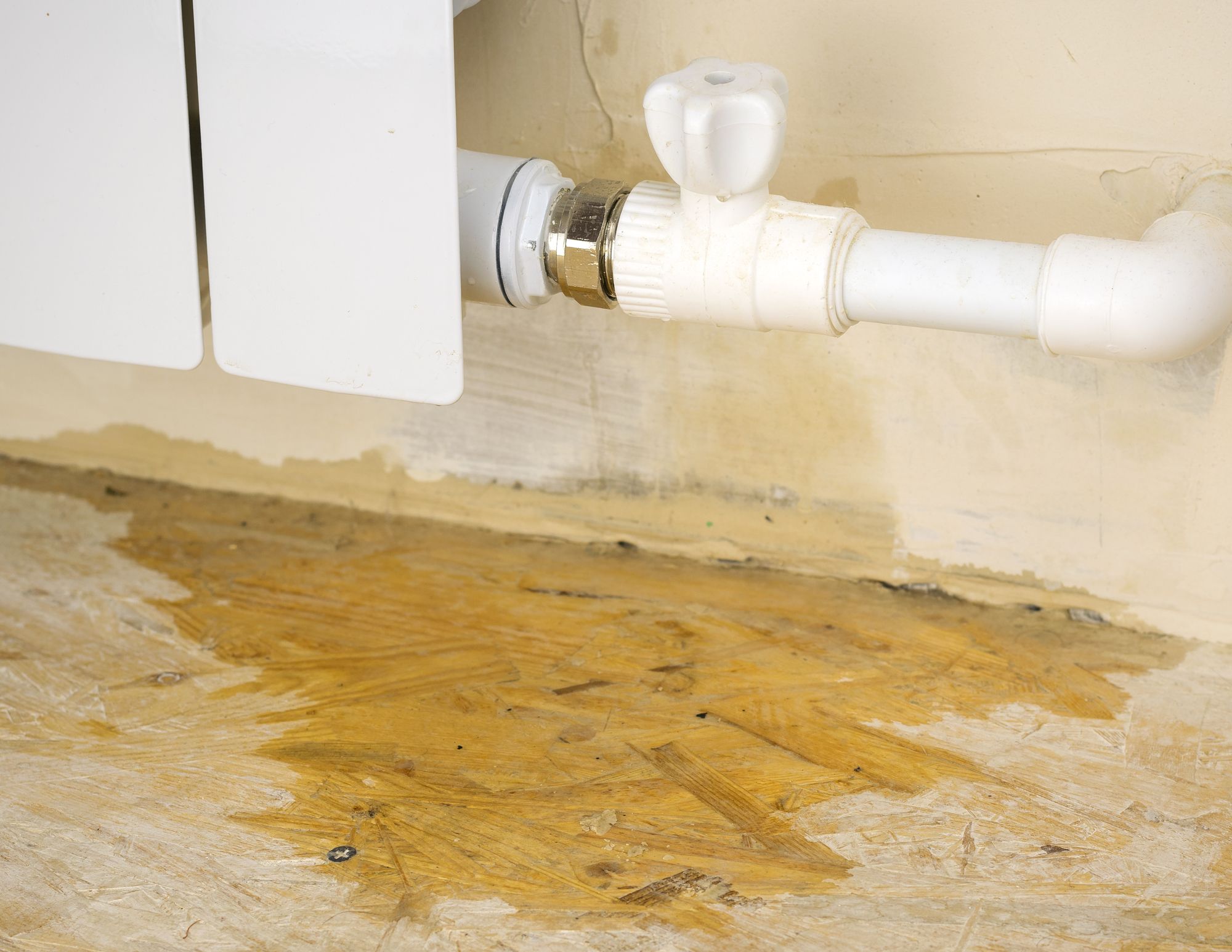

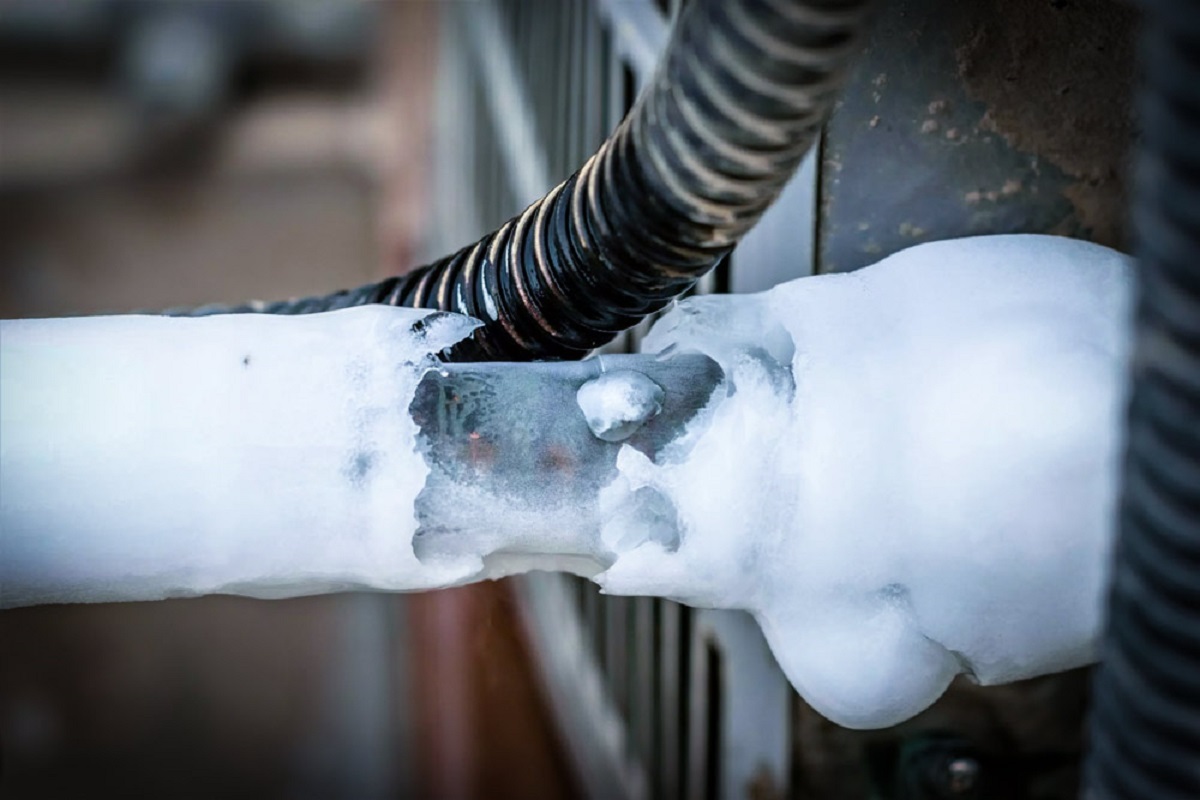
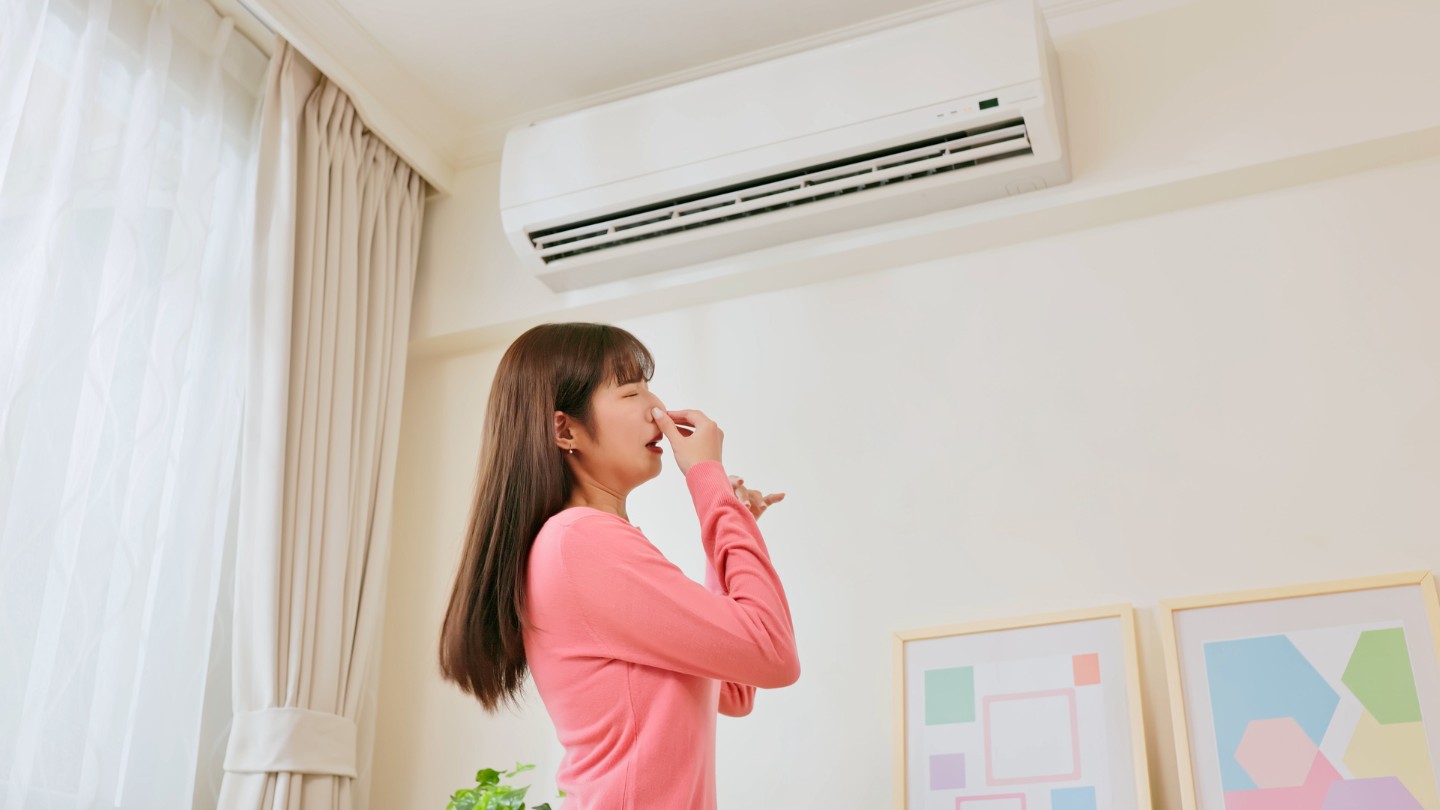
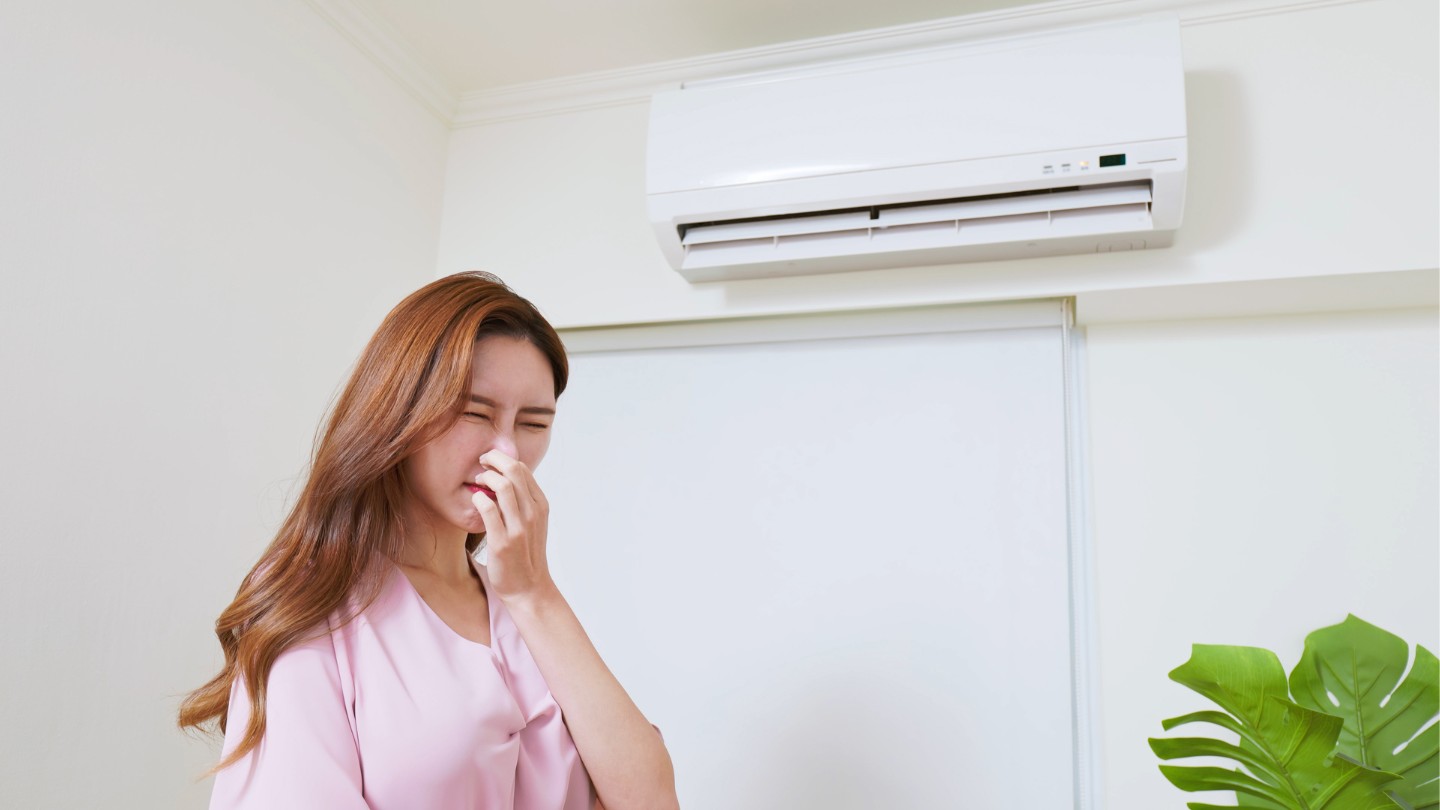

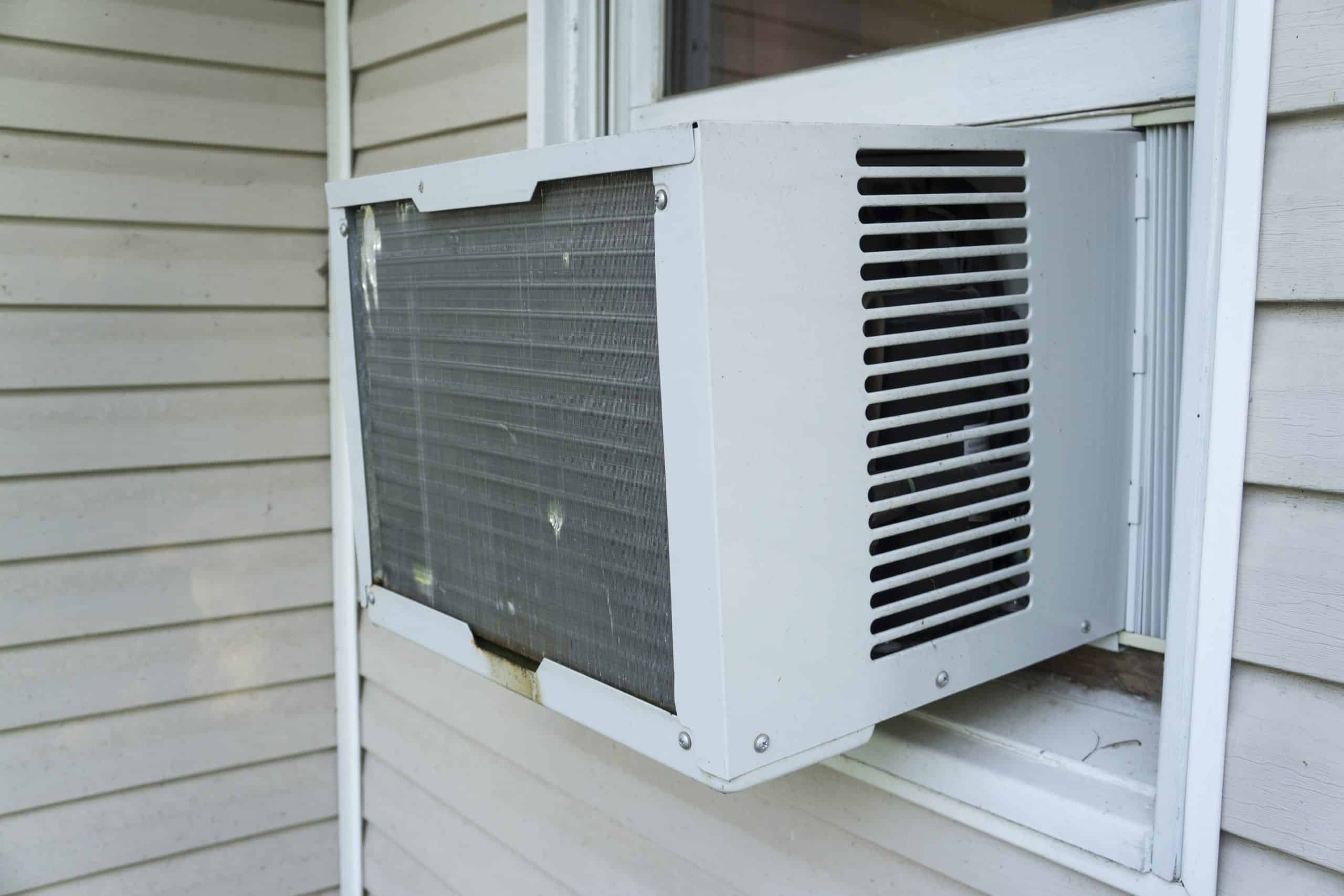
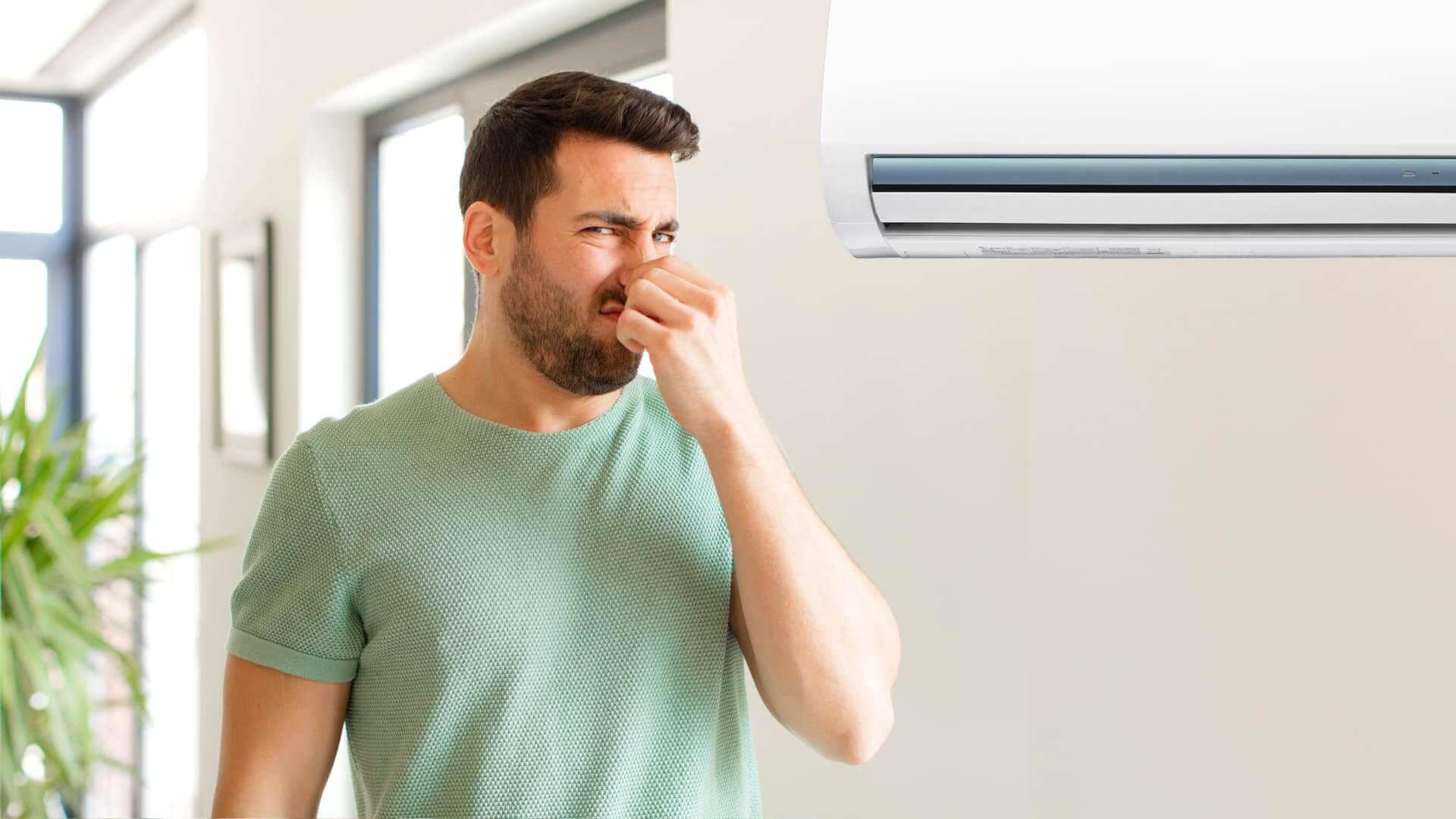
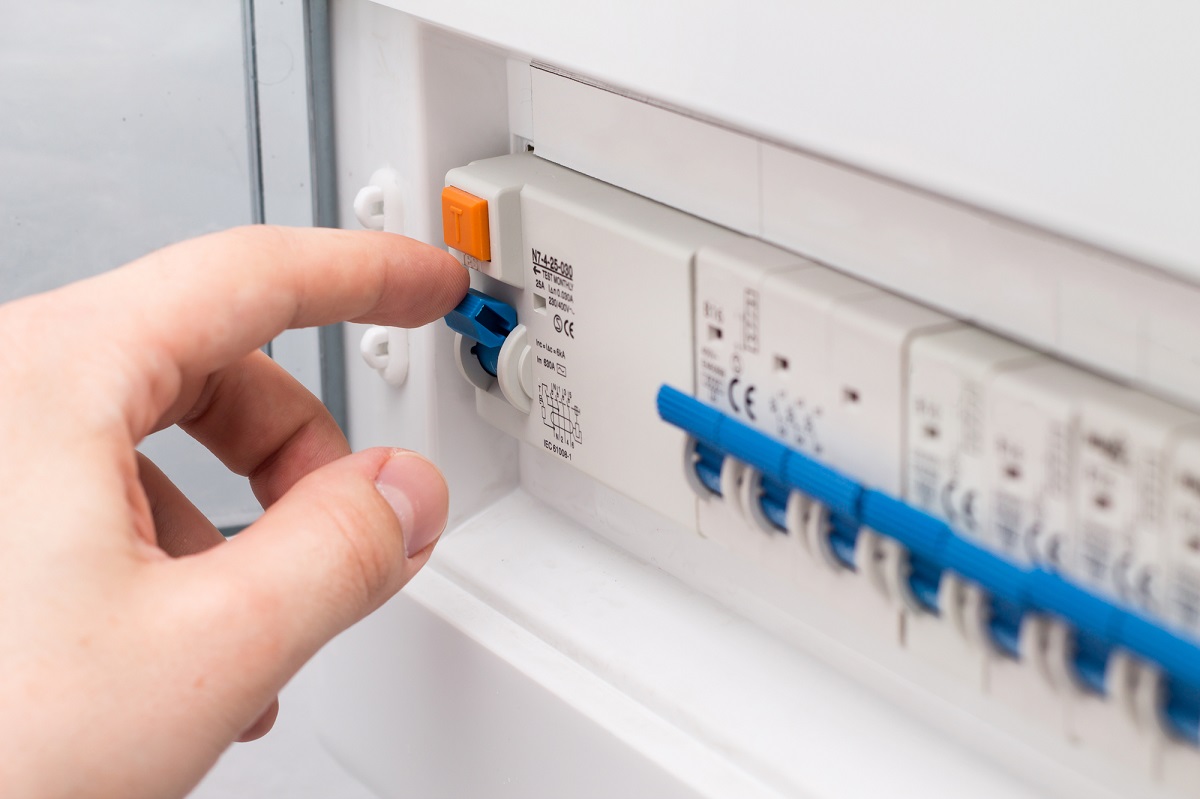
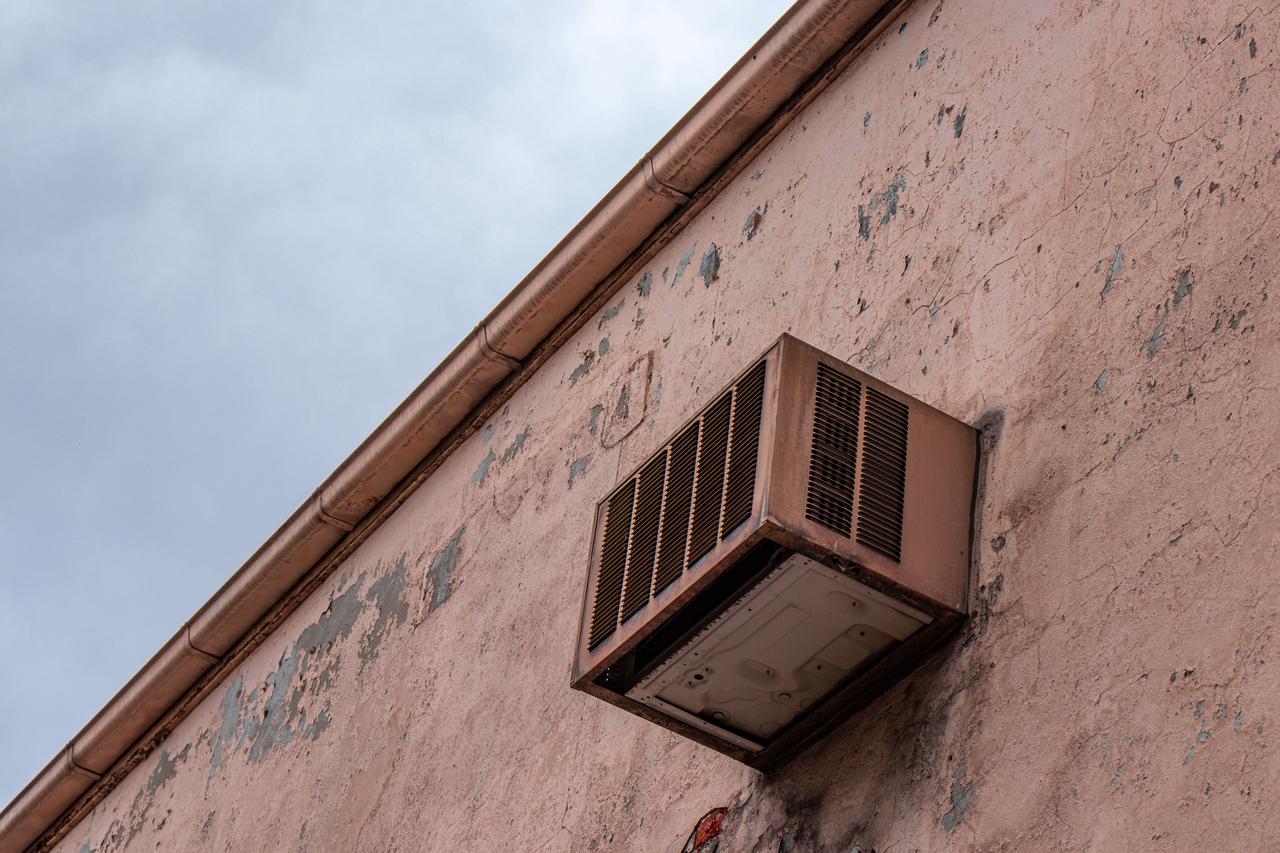
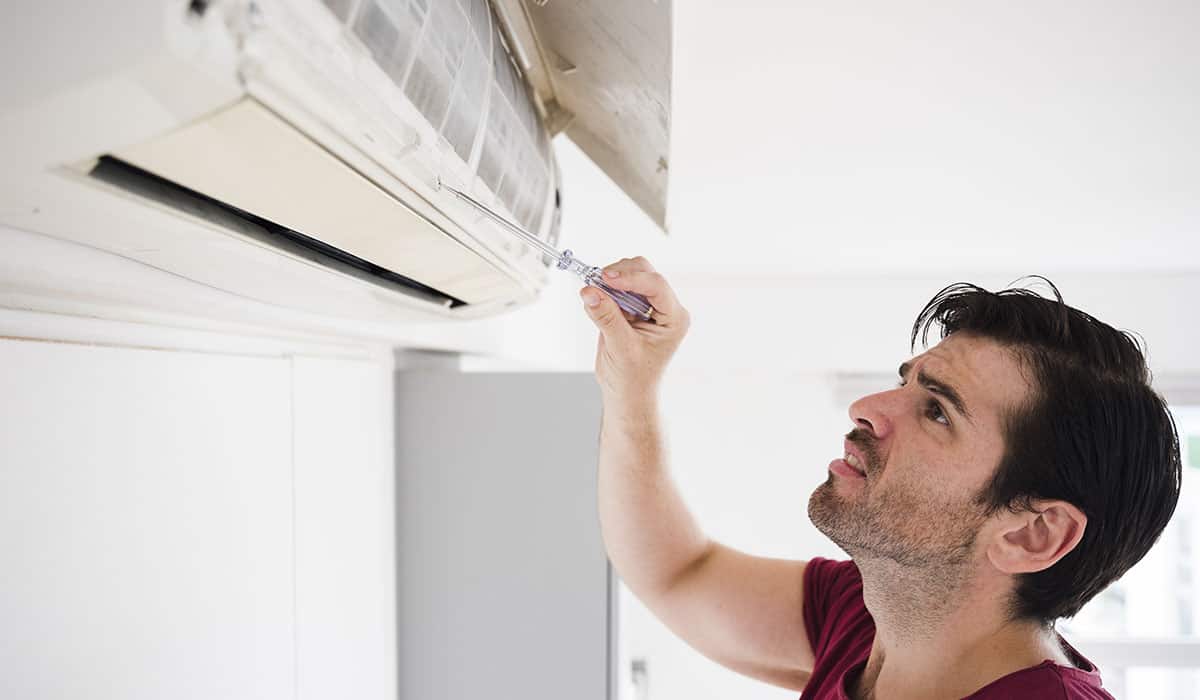
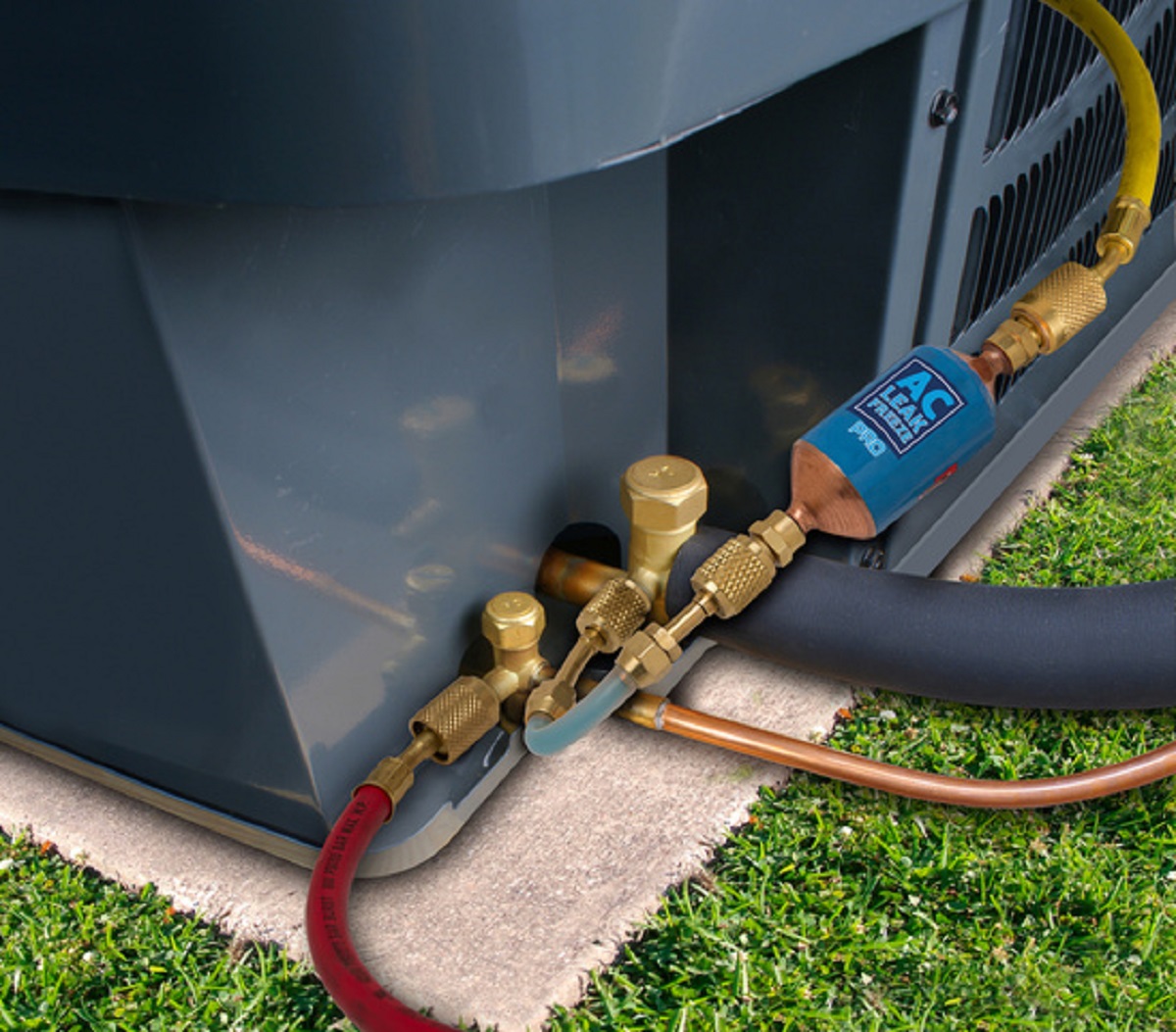

0 thoughts on “Why Does an AC Unit Freeze Up”